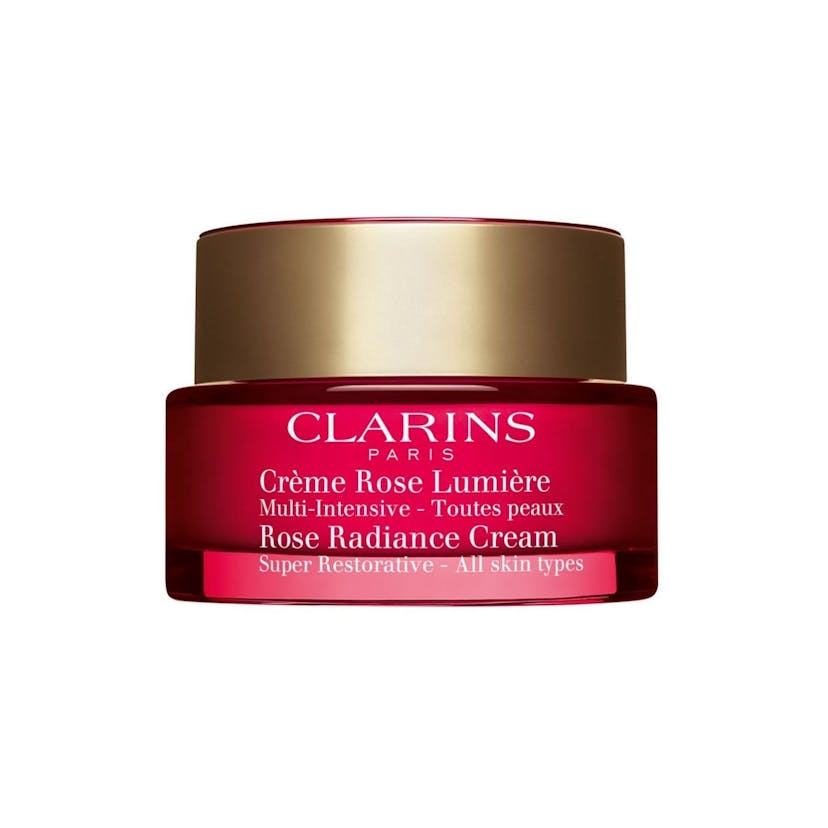The First Signs Of Perimenopause, According To Experts
9 minutes read
Have you noticed there’s a lot of menopause talk? When we first heard Michelle Obama openly discuss her hot sweats in The White House, it was a revelation to women everywhere. Finally, a high profile, successful woman speaking honestly about her body, hormones and all the implications that come with it. There are now podcasts, blogs and associations; a decent workplace should also have a menopause policy covering this very issue.
However, today we’re talking about the lesser-known and even less talked about -perimenopause.
A massive 44% of women are unaware of the signs of perimenopause, and 34% report they did not understand the two phases, namely perimenopause and menopause, despite affecting them sometimes severely.
“Most people talk about menopause when they mean perimenopause. But, for me, it’s the most important stage to be empowered and clued up about. If women were informed and prepared, I don’t think we’d have the issues we currently have with women leaving work and being floored by their symptoms,” says Emma Bardwell, Co-Author of Perimenopause Solution and Registered Nutritional Therapist.
As we speak, women’s symptoms are often ignored, and health problems are under-researched. Women are consistently being told that what they are going through are just ‘women’s issues’ and too often suffer in silence.
Millions of women experience perimenopause, but it’s a topic that remains clouded with confusion. Quite surprisingly, 12% of the entire world population will go through this with little information at hand.
To date, less than 2.5% of publicly funded research is dedicated to reproductive health, even though one in three women in the UK will suffer from a reproductive or gynaecological health problem, according to Public Health England.
Beauty Daily speaks to top global experts to explain everything you need to know about perimenopause.
From identifying the signs of perimenopause to its physical and psychological impact. Also, the communities and organisations can help combat what was once joked about and stigmatised.

What is perimenopause?
Perimenopause means ‘around menopause’. It is the gradual transition leading up to menopause. Menopause marks the end of your menstrual cycles, and you no longer ovulate. According to the NHS, in the UK, the average age for a woman to reach menopause is 51.
“Perimenopause can last anything from a few months to over a decade. That means many women will start to experience perimenopause symptoms as early as their late 30 or early 40 – sometimes earlier,” Bardwell says.
It is also when oestrogen, an essential female hormone, starts to decrease.
“We actually have hormone receptors all over our body, especially when it comes to oestrogen, so when levels dip during perimenopause, we can feel the debilitating effects everywhere – including our brain, heart, skin, bowel and bladder,” explains Bardwell.
How do I know if I am in the perimenopause stage?
“The honest answer is, quite often, we don’t. It’s not really talked about much, and it’s very often put down to stress, getting older or the demands of family life or a full-on job,” says Bardwell.
However, experts say one of the first signs of perimenopause is having irregular periods.
“Some signs you might want to look out for, though, is that your periods can become more erratic. They might get further apart, or you might find you have two [cycles] very close together. Some women will skip a few cycles and then find that everything becomes regular again. You might get lighter bleeding some months and then incredibly heavy cycles during other months.
We’re all different, and every woman will have a unique perimenopause journey. However, it’s important to note you can have regular periods and still be perimenopausal,” explains Bardwell.
Things you can do to determine if you’re perimenopause stage
Kate Usher, Menopause Coach & Change Strategist and Best-Selling Author of Your Second Phase: Reclaiming Work and Relationships During and After Menopause, says two things might help.
1. A blood test might be recommended to check in on your hormone levels.
“Before the age of 45, your doctor will be able to give you a blood test [ to check your levels of follicle-stimulating hormone (FSH) and oestrogen] that will identify whether you are perimenopausal. If you are older, medical guidelines state that it’s not a reliable means of diagnosis,” Usher explains.
2. Listen to your body
“Listen to your body and recognise when things are not as you might expect them to be. For example, maybe you’re more short-tempered, forgetting things, or your hair has become dry or is thinning. Whatever your early symptoms are, you can identify them and act for yourself if you know what to look for.
Most of us know about hot flushes, weight gain, mood swings and variable periods but little beyond that. There are more than 40 symptoms which cover the whole of our lives. Once we have this awareness, we can start to identify any similarities,” she says.
Experts say that no single test or sign is enough to determine if you’ve entered perimenopause as your doctor may consider many things, such as symptoms or body changes, you’re experiencing, age, and menstrual history, among others.
What are the symptoms of perimenopause?
Bardwell says perimenopause symptoms can be so wide-ranging from psychological to physical effects. Here are a few symptoms worth knowing.
Psychological:
- memory loss
- difficulty concentrating
- anxiety
- loss of confidence
- mood swings.
Physical:
- heart palpitations
- joint pains
- acne
- thinning hair
- weight gain
- vaginal dryness
- low libido
What happens to my skin during perimenopause?
“The skin becomes drier, sensitive and susceptible to irritation, inflammation, and rashes. Without oestrogen’s influence to help produce hyaluronic acid and collagen, fine lines, wrinkles, jowls, and sagging skin become more prominent, wound healing is delayed and bruising is more common,” says Keira Barr MD, Menopause & Mind-Body Medicine Specialist, Chief Mindfulness Officer at Resilient Health Institute and International Best-Selling Author of The Skin Whisperer
Adding, “Women may also notice that their pores appear larger due to weaker collagen and elastic tissue. The skin may also be duller in appearance because of the decrease in skin cell turnover, and pigmentation becomes more prominent. Women may also notice increased facial hair, not to mention a resurgence of acne as there is a relative androgen dominance as other hormones diminish at a more rapid rate.”
So how do you prepare for perimenopause skin? Beauty Daily recommends introducing Clarins Super Restorative Range products into your regimens.
The range is dedicated to women experiencing hormonal changes and combating its effects on the skin, such as slackening skin, drier skin, and lack of radiance.
Thanks to the plant ingredients: Harungana, a plant-based alternative to retinol which stimulates the production of collagen to replenish the skin at all levels and Montpellier Rock Rose, for its age-spot correcting action, all main perimenopausal skin concerns are addressed.

We love the Super Restorative Rose Radiance Cream. Both extracts work hard to revive skin’s youth and radiance, resulting in a more luminous complexion, even skin tone, and a smoother skin texture.
Experts say during perimenopause, skin changes can be more subtle, and less pronounced and may increase over time as hormones continue to decline towards the menopause stage.
Barr notes: “Skincare is more than your products; it’s about connection and relationship. My top tips always centre on managing stress through mindfulness, meditation, and movement as medicine. The focus of the work I do is to teach people embodiment practices and empower them with skills to feel more calm, comfortable, and confident in their skin during this phase of life.”
Ways to look after your physical health during perimenopause
Here are the best supplements and treatments for perimenopausal women as recommended by Bardwell.
1. Thyroid health check
“Thyroid health is also important at this time of life and many of the symptoms mimic those of perimenopause: thinning hair, fatigue, weight gain, insomnia, anxiety and irritability, so if women can get their thyroid levels checked at the same time as their baseline blood, even better.”
2. Vitamin D
“Everyone needs a Vitamin D (ideally with a K2 as this helps with bone health) as we can’t get enough from food alone and some omega 3 if they’re not eating two portions of oily fish a week.”
For vegans/vegetarians who don’t eat fish, Bardwell advises investing in an algae oil like Vim & Vigour by Bare Biology.
3. B Complex
“A good B complex (containing all 8 B vitamins) can be beneficial for energy levels and healthy hormone synthesis.”
4. Magnesium
The NHS says women in perimenopause will experience problems with sleeping. Lack of sleep and tiredness can also make symptoms, including irritability, ability to concentrate or anxiety, worse. To help with this, Bardwell suggests taking: “Magnesium to help with sleep and restless legs, particularly if taken before bed. Look for a glycinate variety as it’s well absorbed and aim for around 350mg.”
Ways to look after mental health during the perimenopause stage
The perimenopause stage can be emotionally and psychologically challenging for some women. Experts at Johns Hopkins Medicine say when women go through sudden hormonal changes, such as perimenopause, postpartum or even monthly cycle, they’re at a higher risk for depression.
“Thankfully, we are starting to talk more about the psychological impact of menopause: depression, panic attacks and anxiety, the last of which is often one of the first signs of perimenopause. In addition, your self-confidence and abilities can be impacted by other symptoms such as weight gain, brain fog or insomnia,” says Usher.
Usher listed four things that can help your mental health during the transition stage:
- Identify what symptoms you are experiencing, when and how they occur. Awareness and information are power.
- Are there any triggers that either cause your symptoms to occur or make them worse? Once identified, you can start to remove them.
- Mindfulness is proven to help with many things in life. It will allow you to gain focus and perspective.
- Talk to your partner and your family. Have open communication with your loved ones about perimenopause’s emotional and physical changes. It will also open the opportunity for them to find empathy and support you with what you’re going through.
Whatever happens, it’s important to realise that you are not alone and that help and support are available from a healthcare professional who specialises in perimenopause or menopause such as Emma Bardwell, Keira Barr and Kate Usher or from communities like The Latte Lounge, a multi-award-winning platform for midlife women.
If you think that you are experiencing perimenopause and your symptoms are stopping you from being able to do normal things in your life, or are causing you to worry, see your doctor or contact one of the professionals mentioned above and get the conversation started.
Sign up for our newsletter
We will keep you in the loop for special offers, exclusive gifts and product news.
Products You Might Like
TOP RATED
BEST-SELLER
BEST-SELLER

